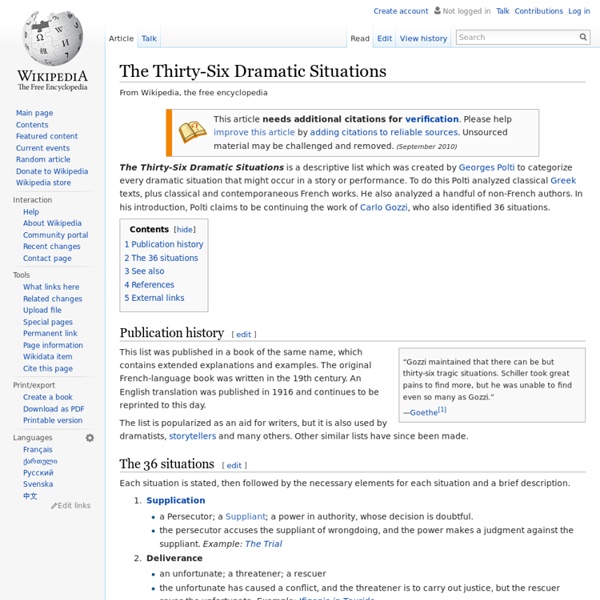Questionnaires for Writing Character Profiles - Creative Writing Help
Enter your e-mail to get the e-book for FREE. We'll also keep you informed about interesting website news. "I have searched the web and used different worksheets, but none have come close to your worksheets and descriptions of (what to do and what not to do). Both courses I have taken have with Creative Writing Now have been amazing. Each time I have learned something new. The one thing I love, you take everything apart and give examples." - Katlen Skye
50 Awesome Open Source Resources for Writers and Writing Majors
With the popularity of blogging and online journals, writers working in the online realm have a growing number of opportunities all the time to practice and refine their craft, and maybe even get paid for it. And if you’re a writing major, why not take advantage of all the opportunities to get great free and open source resources that can help you to write, edit and organize your work? Here’s a list of fifty open source tools that you can use to make your writing even better. Word Processors Why pay for expensive word processing programs when you can get high quality and open source alternatives for much less?
25 Things You Should Know About Character
Previous iterations of the “25 Things” series: 25 Things Every Writer Should Know 25 Things You Should Know About Storytelling And now… Here you’ll find the many things I believe — at this moment!
9 Editing Tips that Make Your Writing Sparkle
It’s often said that writing is rewriting. Banging out a quick first draft can be fun, but the real grunt work comes in revising your work. Here are nine editing tips that can help you polish your writing until it sparkles:
Themes & Things To Keep In Mind When Writing Fantasy Stories and Adventures » Daily Encounter
This list is far from complete. It’s not even trying to be complete. It knows better than that. It just wants to be helpful and provide some inspiration here and there; you know, offer little suggestions that might lead to bigger ideas. (Especially by using the words offered as Wikipedia searches!) Feel free to make suggestions in the comments!
Character Chart for Fiction Writers - EpiGuide.com - StumbleUpon
If you're a fiction writer -- whether you're working on a novel, short story, screenplay, television series, play, web series, webserial, or blog-based fiction -- your characters should come alive for your reader or audience. The highly detailed chart below will help writers develop fictional characters who are believable, captivating, and unique. Print this page to complete the form for each main character you create. IMPORTANT: Note that all fields are optional and should be used simply as a guide; character charts should inspire you to think about your character in new ways, rather than constrain your writing. Fill in only as much info as you choose. Have fun getting to know your character!
150 Resources to Help You Write Better, Faster, and More Persuasively
It doesn't matter if you're a student or a professional writer: there's always something new to learn and ways to make your writing more refined, better researched, and more effective. Writing is essential for students who want to succeed, whether they're enrolled in one of the top online colleges or an Ivy League university. As essential as it is, learning to write well isn't easy. The best practices for writing and research can sometimes be subjective, and the finer points of syntax and style often take a backseat to looming deadlines and strict citation guidelines. Luckily, there are many helpful resources that make it easier to build on your existing skills while learning new ones. We've compiled links to sites dedicated to helping students, bloggers, and professional writers improve their techniques while also becoming better editors and researchers.
Creative Writing Prompts: Secrets and Lies for Your Characters
Nothing is better (or more fun for the writer) than a story-relevant secret or lie. Give some dilemma beneath the surface story to give your character depth, add suspense and tension, and keep your reader turning the pages. You can drop hints throughout your writing and when the reveal comes—you will surprise, shock, and delight your reader. Creating a character with a strong internal conflict, secret, or burden makes for one compelling read! (To see more on writing a compelling protagonist, check out The Compelling Protagonist Part 1 and Compelling Protagonist Part 2.)
Writer’s Digest - Writing Prompts
Write a scene that includes a character speaking a different language, speaking in a thick accent, or otherwise speaking in a way that is unintelligibe to the other characters. (Note: You don't necessarily need to know the language the character is speaking—be creative with it!) Describe a character's reaction to something without explaining what it is. See if your fellow prompt responders can guess what it is.
11 Goal Hacks: How to Achieve Anything — PsyBlog - StumbleUpon
Goal-setting research on fantasising, visualisation, goal commitment, procrastination, the dark side of goal-setting and more… We’re all familiar with the nuts and bolts of goal-setting. We should set specific, challenging goals, use rewards, record progress and make public commitments (if you’re not familiar with these then check out this article on how to reach life goals).



